She Caught Me Staring at Her Hair…
The sista looked up and saw me staring. I was openly eyeballing her and there was no denying that she caught me in the act. I didn’t have enough time to look away so our eyes locked awkwardly for another second or two. Since not all folks take kindly to strangers eying them up, I blurted out the thought that had been at the forefront of my mind since I saw her:
“Sis,” I said hesitatingly, “your hair is fly!
She seemed to almost breathe a sigh of relief as her smooth brown skin relaxed into a smile.
“Thank you!” she replied. “I like yours too.” I asked her a few questions about her hair regimen and she asked me some about mine. The train doors open and she stood up to get off at her stop.
“Peace sis!” she said with a wave. I responded in kind and the train doors closed.
——-
Black Hair Encounters On the Street…
A few weeks ago, I was walking to pick up my son from a neighbor’s house. I crossed the main street and gray SUV with tinted windows turned the corner, pulled up next to me and slowed down. Now, I’ve watched enough television and been around long enough to know that don’t nuthin’ good usually come from slow moving cars with darkly tinted windows. I talked myself out of panicking as I picked up my pace a bit. This didn’t help because the car picked up its speed as the passenger side windows both began to roll down.
It was all I could do to not break out into a run as I looked up at the car preparing to sprint away from the scary things might be looking back at me from inside the car.
As I looked up, I saw smiling faces as a carload full of beautiful Black woman stared back at me.
“Miss,” one of them called out. “Is all of that your hair?!”
Now it was my turn to breathe a sigh of relief. I spoke with them briefly about my Afro and we exchanged a few nice comments about hair care in general. We wished each other well and they continued down the street. It wasn’t until they started to pull off that I realize none of them actually were actually wearing natural hairstyles.
——–
Black Hair Questions from the Youngins’
“That all your hair?” The young girls asked as my sister friends and I walked passed their stoop. The girls looked to be anywhere from 12 to 15 years old. One of them wore twisties, another had extensions and the other three had their hair straightened.
“Sure is,” we replied.
“Well I don’t mean to be rude,” one of the girls said with just a touch of snark. “But how come yours is so nappy and hers isn’t?” The girls then dissolved into giggles. It was clear that they had been discussing this very question as they saw us approach.
“Because we have two different textures of hair” I answered. “She has a looser curl pattern then I do.”
“But,” one of my sister friends interjected as she pointed at my tightly coiled Afro, “her hair is longer than mine even though it looks shorter right now.”
What followed was a lively conversation about politics of hair texture and the realities of shrinkage. The young ladies had some great questions and when we were done talking my girls and I went on our way.
—–
Black Hair Whispers With the Elders
By the time I arrived at the church, the youth program was already underway. This was a classic Black church event complete with a great spread of food. Kids were singing on stage, the audience was full and the adults were bustling about making sure everything was done correctly and everyone had plenty of food to eat.
Three of the elders who were in charge of the program sat in the back near my table. After we greeted each other, one of them leaned closely.
“Now baby,” she whispered with a gravelly voice aged with wisdom, “That ain’t all yo’ hair now is it?”
“Yes ma’am it is.” I answered.
She paused. “Well…how in the world do you do comb it?” she whispered back. We ended up having a whispered discussion about basic natural hair care. It was a conversation that crossed generational lines and was empowering for both of us.
—–
Black Hair: A Point of Connection…
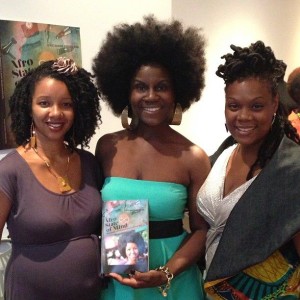
L-R: (A very pregnant) Me, Karen Tappin of Karen’s Body Beautiful & Lindsay Fauntleroy of OceanAndRivers.com
I share these vignettes because they are representative of a larger phenomenon I see happening today with Black women as it pertains to Black hair. I tweeted about this a few weeks ago, and based on the response I felt like this was a thought that needed a bit more development.
It seems as if Black hair—a topic rife with controversy that has been used in many circles to divide Black women and girls—is becoming a point of connection. Regardless of how one actually wears their hair. It’s frequently becoming a conversation starter that allows Black women with different hair textures or styles and shades of brown skin to build with each other in a way that is both empowering and supportive.
I’ve noticed sistas wearing straight hair asking naturalistas about their transition. I’ve seen naturalistas speaking with other natural heads about regimens, big chop experiences and the like. From natural hair conferences, to meet ups to twitter chats, book clubs and discussion groups—embracing Black hair (regardless of how you choose to wear your own hair) is becoming a way for Black women to solidify our appreciation for us and how we look.
And I’m here for all of it.
Why We Need This…
This is important because Black women are often shown as catty, mean-spirited and angry—the very opposite of good friendship or sisterhood material. It seems as if nearly every depiction of us in reality and/or scripted TV seems to specialize at showing us at our most base, our most angry and most enraged moments.
Not only are we vilified by the mainstream but we are also ignored by many independent media outlets. Were it not for the work of Black women like Shonda Rhimes one has to wonder if the complexities that make up Black womanhood would show up in the media anywhere with any regularity.
Adding insult to injury, many within our own community have embraced these depictions as the definition of what Black women look and act like. So much so that an entire genre of Black music (aka rap) is based in large part on calling us bitches, disloyal hoes, stank baby mamas and the like.
Even defending Black women has become a foreign concept. While too many Black rap artists readily make Black woman the butt many jokes (and I do mean the BUTT), some of these same men bend over backwards to form a truce based on defending a white woman rapper from being talked about as if she were a Black woman (What’s up T.I.? How you doing brotha Snoop? Oh…and hi Iggy…).
I’m Gonna Lift My Sista Up…She Aint Heavy!
In light of that, it feels really great when Black women can use something like our hair as a point of connection. As a way of reaching out to not only compliment each other, but to engage in a supportive discourse that allows us to form a stronger sisterhood; even when the potential sista is a complete stranger.
One of the songs we use in some of our youth programs is a call and response that goes like this:
Call: I’m gonna lift my sista up!
Response: She ain’t heavy!
Call: I’m gonna lift my sista up!
Response: She ain’t heavy!
All Together:
Cause if I don’t lift her up! (clap clap clap) (pointing at self)
If you don’t lift her up! (clap clap clap) (pointing at another student)
If we don’t lift her up! (clap clap clap) (gesture to group)
THEN WE ALL FALL DOWN!
The chant is repeated and the word “sista” is replaced with “brotha” and “community”. We use intentional songs and similar activities to give our kids an opportunity to show each other kindness. This is important because Black children (people) are bombarded constantly with images that show us at our worst. At our meanest. At the peak of our ability to hurt each other.
Nearly every reality T.V. show featuring Black people shows us in a perpetual state of confusion, anger and demonstrating a complete lack of leadership ability. We rarely see images of us engaging in acts of trust, kindness, or showing and respecting vulnerability. All of which are necessary if we are going to have a shot at healing from the woulds we are dealing with as a community.
We are all we got. And if we can use something like hair as a way of building each other up then I’m all for it.
I hope this grows. I hope we can continue to embrace the very features that society tells us to despise as a tool of resistance. I pray we can keep using our hair, complexions and features as a way of complementing each other and supporting each other.
We’re so often put down and taken for granted that we have to be intentional about lifting each other up. I once heard the saying that the hardest thing to do is to love a people taught to hate themselves. If that’s true then the most powerful thing we can do is proactively love each other. If we’re all we got then we gotta use us to build us up…
So if you see a sista rocking a great hairstyle (be it natural, straight, locked, weaved or bald), tell her so. If you see a sista with a beautiful smile, tell her. Notice a sista doing good work? Let her know.
Keep finding a way, anyway, to show our people acts of kindness. Our collective self esteem and the health of our community may depend on it.
********
Looking for more thoughts from an Afro State of Mind? Check out my book Afro State of Mind: Memories of a Nappy Headed Black Girl now available on Amazon.com in paper back or e-book! And if you want to stay connected follow me on Twitter, “like” Afro State of Mind on Facebook or catch up on my latest youtube videos!
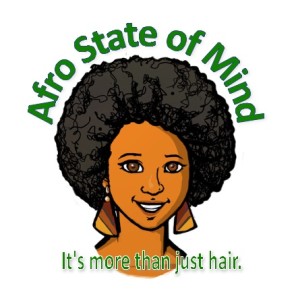
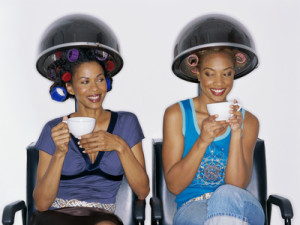
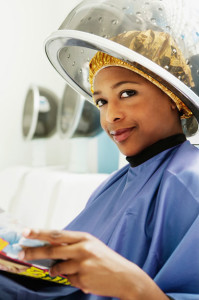
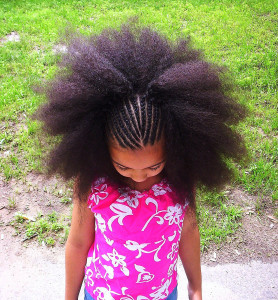
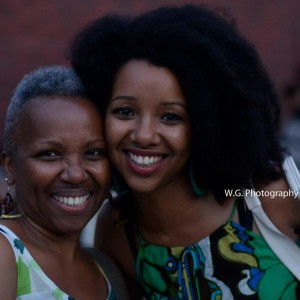
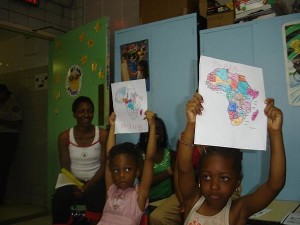


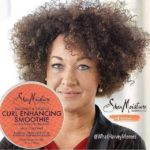
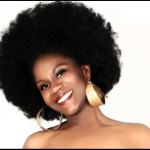
[…] Creating positive spaces for Black women to support & uplift each other; […]